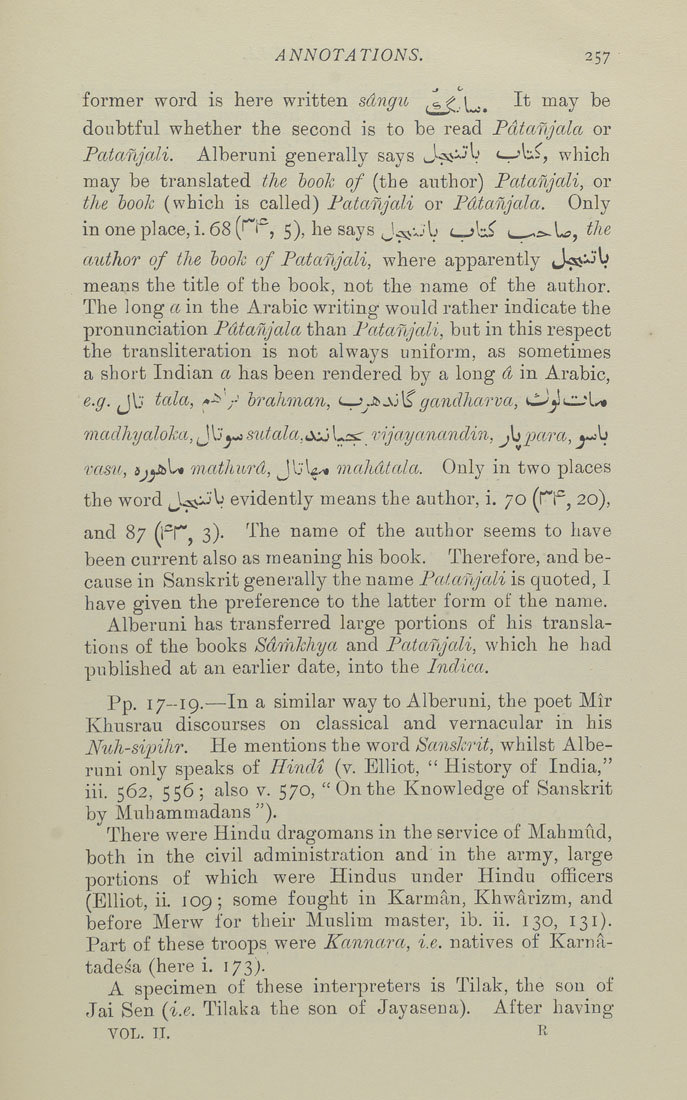ANNOTATIONS. 257
former word is here written sdngit ,^t\^. It may be
doubtful whether the second is to be read Pdtetfijctlct or
Pcttanjali. Alberuni generally says J.vsji.J*u c_.?lui, which
may be translated the book of (the author) Patanjali, or
the book (which is called) Patctnjali or Pdtanjala. Only
in one place, i. 68 (n"^, 5), he says J^^v-jIj t^-:S (,_^£.-L:, the
author of the book of Pcttanjali, where apparently iJ^j^J'V
means the title of the book, not the name of the author.
The long et in the Arabic writing would rather indicate the
pronunciation Pdtanjala than Patctnjctli, but in this respect
the transliteration is not always uniform, as sometimes
a short Indian a has been rendered by a long d in Arabic,
c-g. A\j tctlet, /»^'/ brahman, i--iji>yj'€gctndhctrvct, i^^Sci-'l^
mctdhyctlokct,iJ\jyMSutalct,i\x>\.^:s: vijayctnctndin, J^pctra, »«.-U
vetsu, i .yfcU medhurd, Jb'U^ methdtcdxt. Only in two places
the word J^^^V evidently means the author, i. 70 (rp, 20),
and 87 (l^r 3). 'f'he name of the author seems to have
been current also as meaning his book. Therefore, and be¬
cause in Sanskrit generally the name Paletnjctli is quoted, I
have given the preference to the latter form of the name.
Alberuni has transferred large portions of his transla¬
tions of the books Sdmkhyct and Pcttctnjctli, which he had
published at an earlier date, into the Indicet.
Pp. 17-19.-—-In a similar way to Alberuni, the poet Mir
Khusrau discourses on classical and vernacular in his
Nuh-sipihr. He mentions the word Sanskrit, whilst Albe¬
runi only speaks of Hindi (v. Elliot, " History of India,"
iii. 562, 556; also v. 570, "Onthe Knowledge of Sanskrit
by Muhammadans ").
There were Hindu dragomans in the service of Mahmud,
both in the civil administration and in the army, large
portions of which were Hindus under Hindu officers
(Elliot, ii. 109; some fought in Karman, Khwarizm, and
before Merw for their Muslim master, ib. ii. 130, 131).
Part of these troops were Kannctrct, i.e. natives of Karna-
tadesa (here i. 173J.
A specimen of these interpreters is Tilak, the son of
Jai Sen (i.e. Tilaka the son of Jayasena). After having
VOL. II. 1'^
|








